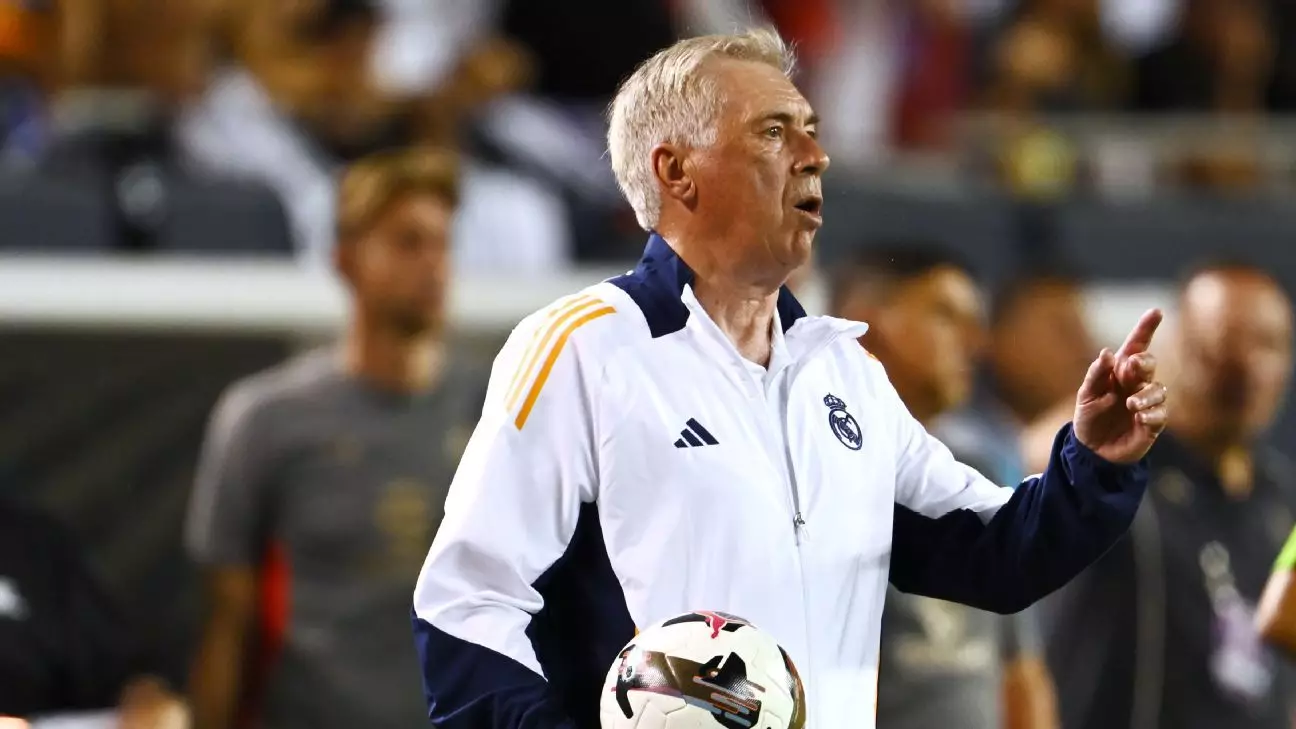In recent discussions surrounding the welfare of football players, more voices are rising against the mounting pressures of modern football schedules. Carlo Ancelotti, the esteemed coach of Real Madrid, has articulated a critical perspective on the increasing number of games players are expected to compete in annually. With the Champions League now expanded and the introduction of the revamped Club World Cup, top players could face the daunting prospect of participating in up to 85 matches in a single season. This grueling demand has led to widespread complaints from players regarding the excessive strain on their bodies and well-being.
Ancelotti’s assertion that players might be willing to accept a pay reduction in exchange for fewer matches unveils a significant issue in contemporary football – the delicate balance between job security, performance, and health. The reality is stark: clubs are pushing their athletes to limits that may inevitably lead to injuries, burnout, and diminished performance on the pitch. Ancelotti emphasized the necessity for a collective reflection on this aspect, underscoring the implication that a salary cut could serve the greater goal of reducing injury risks.
The urgency of Ancelotti’s comments is echoed by Manchester City midfielder Rodri, who recently warned that the increasing workload could soon push players to consider strike action. This sentiment has resonated throughout the football community, garnering support from several high-profile athletes, including Real Madrid’s own Thibaut Courtois and Dani Carvajal. Their willingness to speak out highlights a significant shift in player mentality; they recognize the need for changes and understand that effective measures must be taken to protect their health and longevity in the sport.
Despite the growing unrest among athletes, Ancelotti remarked that complaints from players and coaches alone would not alter the current season’s calendar. This reality reflects an unsettling truth: the demands of commercialism in football often overshadow the welfare of its players. The Ricochet effect of prioritizing profits over people’s well-being sends a message that the industry must address if it wants to retain the integrity of the game.
As Real Madrid moves through the current LaLiga season, Ancelotti is keenly aware that his squad is still finding its rhythm. Following a determined 3-1 victory against Stuttgart, the team’s form has seen promising flashes of brilliance, yet the coach acknowledges that improvement is essential as the season progresses. He insists that while his players may not currently be at their peak, the gradual elevation of performance levels typically occurs in the months of October and November.
One striking aspect of Ancelotti’s coaching philosophy is his approach to team formation and balance. When questioned regarding a potential tactical shift to a four-man midfield to bolster team cohesion, he maintained that balance is not solely dictated by player numbers on the field. Instead, he emphasized the collective effort required from all members of the squad, highlighting the importance of sacrifice and teamwork in achieving an effective tactical setup.
Another key talking point for Ancelotti is the emergence of promising talent within the squad, particularly Brazilian forward Endrick. Having joined the club from Palmeiras earlier this summer, he has already marked his presence with goals in both LaLiga and the Champions League. Ancelotti’s confidence in Endrick is evident as he envisions an expanded role for the young player in forthcoming matches, signifying the club’s investment in nurturing future stars.
Alongside an eye on the emerging talent, Ancelotti also offered positive updates regarding the recovery of midfielder Eduardo Camavinga, who has been sidelined due to a knee injury. Camavinga’s imminent return is poised to significantly bolster the team’s dynamics and depth as they aim for a competitive season.
As the football landscape continues to evolve, Ancelotti’s insightful commentary serves as a clarion call for greater acknowledgment of player welfare amid an exploitative environment. The discussions surrounding workload, injury risks, and potential salary cuts are not mere reflections of individual grievances but a collective appeal for systemic reform. For the good of the sport – and those who play it – the football world must embrace a future that prioritizes health and well-being, ensuring that the thrill of the beautiful game continues for generations to come.


Leave a Reply